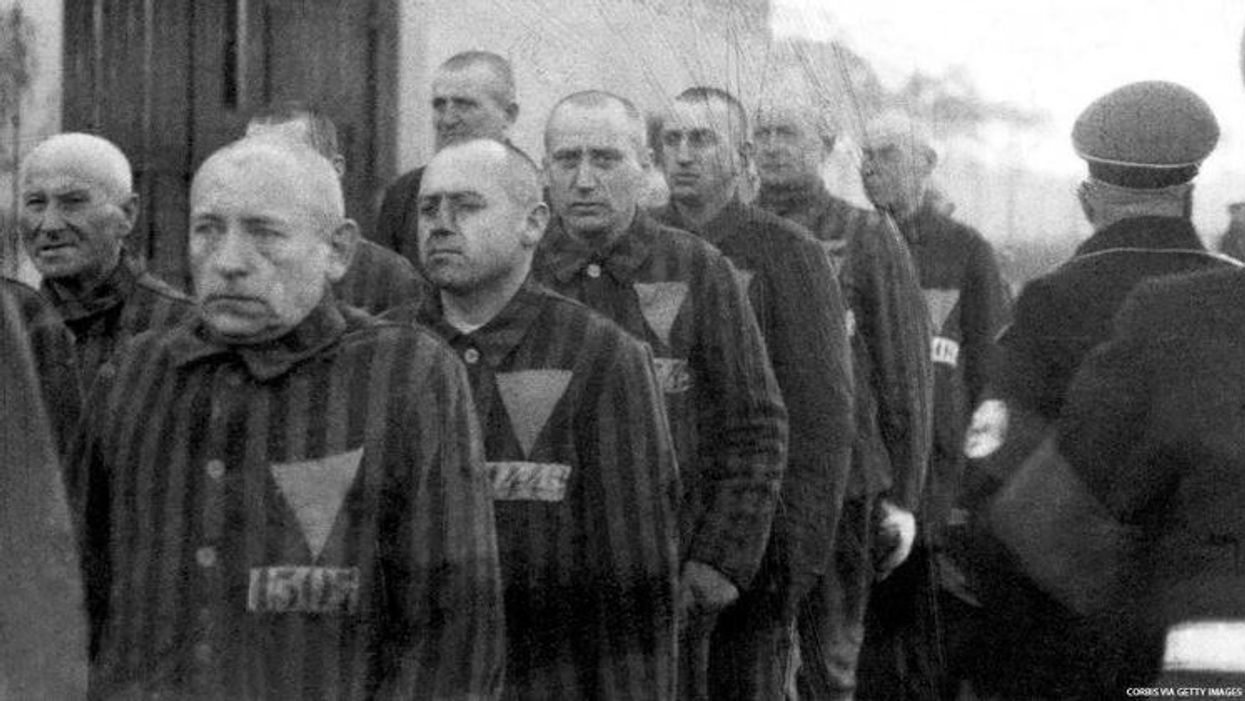During this year’s Holocaust commemorations in Berlin, the German parliament, for the first time, dedicated the remembrance to those killed by Nazis because of their gender identity and sexual orientation. The body also acknowledged decades of post-World War II persecution against LGBTQ+ people in Germany.
For more than 20 years, activists have worked to establish an official ceremony for LGBTQ+ Nazi victims.
The president of the lower house of parliament, the Bundestag, Bärbel Bas, said LGBTQ+ survivors of the Third Reich had to wait a very long time for recognition.
“This group is important to me because it still suffers from discrimination and hostility,” Bas told the wire service Agence France-Presse.
Imprisoned gay men were murdered, castrated, or used in horrendous medical experiments in concentration camps.
At these camps, thousands of lesbians, transgender people, and sex workers were detained under brutal conditions and branded “degenerates.”
“We remember all people who were persecuted by the National Socialists — robbed, humiliated, marginalized, tortured, and murdered,” said Bas in the Reichstag chamber to an audience that included German Chancellor Olaf Scholz and his cabinet.
“The harshest fates were suffered by the many thousands of women and men who were deported to concentration camps as a result of their sexuality. Sometimes on false pretexts. They found themselves on the very bottom rung of the so called ‘camp hierarchy’ and were exposed to constant violence with absolutely no protection,” Bas said.
Since 1996, Germany has marked International Holocaust Remembrance Day with solemn ceremonies at the Bundestag and events across the country remembering the more than six million Jewish people killed under Adolf Hitler.
“For our society to remember, it is important that we tell the stories of all persecuted people — to highlight their injustices and to acknowledge their suffering,” Bas said.
\u201c\u201eF\u00fcr unsere #Erinnerungskultur ist es wichtig, dass wir die Geschichten aller Verfolgten erz\u00e4hlen. Ihr Unrecht sichtbar machen. Ihr Leid anerkennen\u201c, betonte Bundestagspr\u00e4sidentin @baerbelbas (SPD) einleitend in der Gedenkstunde zum #HolocaustGedenktag im #Bundestag. Ein Thread\ud83e\uddf5\u201d— Heute im Bundestag (@Heute im Bundestag) 1674813763
Because German authorities rarely enforced laws surrounding homosexuality before the rise of the Nazis, LGBTQ+ communities thrived in places like Berlin and other German cities where sex between men had been outlawed since 1871.
Germany toughened its laws regarding sex between men in 1935 and sentenced violators to ten years of forced labor.
Between 6,000 and 10,000 of the nearly 60,000 men imprisoned for violations of this law were sent to concentration camps and forced to wear pink triangle-adorned uniforms.
In addition to thousands of gay men killed under brutal conditions, historians believe countless transgender and lesbian people also died.
Bas said it was a “disgrace” that in Germany, even after World War II, LGBTQ+ people still faced persecution. East Germany repealed its same-sex prohibition in 1968, while West Germany did not fully repeal the ban until 1994.
German lawmakers voted in 2017 to overturn the convictions of more than 50,000 gay men convicted of homosexuality and to pay them reparations.
“By the time there were reparations, many [victims] were no longer alive,” Bas said to AFP.
- George Santos Also Lied About Grandparents Fleeing Holocaust ›
- United Arab Emirates Becomes First Arab Nation to Teach About the Holocaust ›
- Is Stranger Things Profiting Off of the Holocaust? It Sure Looks Like It ›


















































